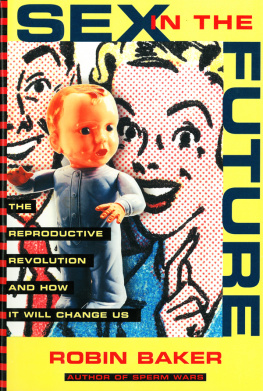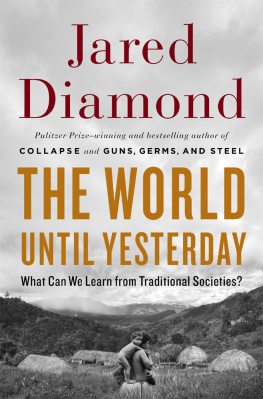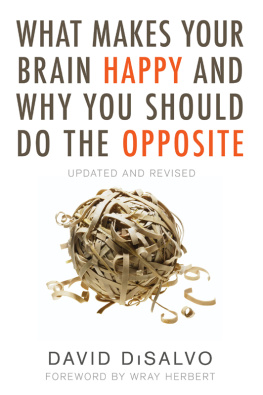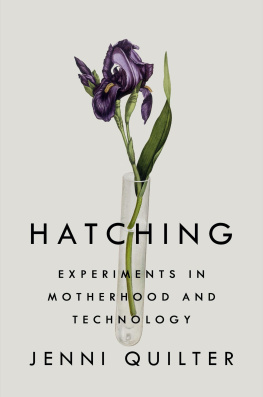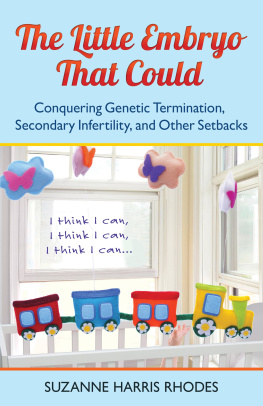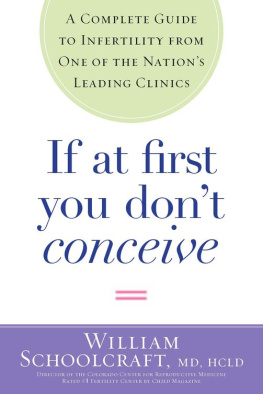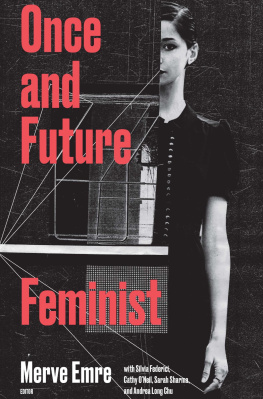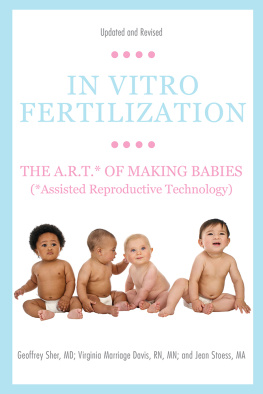ALSO BY ROBIN BAKER
Sperm Wars: The Science of Sex
Baby Wars: The Dynamics of Family Conflict (with E. R. Oram)
Copyright 1999, 2000, 2012 by Robin Baker
All Rights Reserved. No part of this book may be reproduced in any manner without the express written consent of the publisher, except in the case of brief excerpts in critical reviews or articles. All inquiries should be addressed to Arcade Publishing, 307 West 36th Street, 11th Floor, New York, NY 10018.
Arcade Publishing books may be purchased in bulk at special discounts for sales promotion, corporate gifts, fund-raising, or educationalpurposes. Special editions can also be created to specifications. For details, contact the Special Sales Department, Arcade Publishing, 307 West 36th Street, 11th Floor, New York, NY 10018 or .
Arcade Publishingis a registered trademark of Skyhorse Publishing, Inc., a Delaware corporation.
Visit our website at www.arcadepub.com.
10 9 8 7 6 5 4 3 2 1
Library of Congress Cataloging in Publication Data is available on file.
ISBN: 978-1-61145-678-3
To Liz With thanks for the warning
CONTENTS
?
?
?
ACKNOWLEDGMENTS
As usual since I left the sanctity of academia to enter the maelstrom of popular science writing, my partner has made an invaluable contribution to the books contents. In conversation, she saw problems with much that I told her I was about to write. On some occasions, I eventually came to agree with her. On others, I didnt. But even then, the deep discussions we had considerably sharpened my appreciation of what I was trying to say. I have no hesitation in dedicating this book to her.
Sex in the Future has neither footnotes nor references. Yet the book could not have been written without the basic research carried out by huge numbers of people. A sincere acknowledgment, therefore, must go to all those unnamed scientists whose research, insight, and technological wizardry have contributed in any way, large or small, to the ideas, stories and procedures presented in these pages. For the sake of any readers who might wish to pursue the science and technology further, I have added a small bibliography.
I thank Kim Cotton of COTS (Childlessness Overcome Through Surrogacy) and Dr. Pease of St. Mary's Hospital, Manchester, England, without whose advice I might have slipped up in one of my scenes. My final acknowledgment, though, is more in the form of an apologyto the School of Biological Sciences at the University of Manchester in general and to my two former research students, Chris Bainbridge and Charlie Nicholls, in particular. In August 1997 I decided that the only way I could write this book would be to give up virtually all my lingering university commitments. I thank everybody who helped me do so. I left Chris and Charlie in capable hands and congratulate them both on now having been awarded their Ph.D.s.
INTRODUCTION
ANCIENT URGES MEET FUTURE TECHNOLOGY
Ancient urges a powerful phrase conjuring up thoughts of wanton promiscuity and public sex. Images form of lustful cavemen dragging subservient females by their hair, or of hedonistic women bestowing liberal sexual favors on ever-potent men. This is not the way most of us run our reproductive affairs but the beast is in us, nonetheless.
Who can deny that the human sexual repertoire, from its most basic to its most subtle, is anything other than ancient etched into our bodies by millennia of natural selection? Each person's anatomical gender is determined the moment their fathers sperm enters their mothers egg. Thereafter, their sexual destiny is a roller coaster of genetically orchestrated development. Men develop a penis and testes, manufacture sperm, have erections, and enthusiastically seek women to inseminate. Women develop a vagina, womb, and ovaries, and manufacture eggs. They organize their body chemistry and behavior around a menstrual cycle, and albeit with perspicacity seek men to inseminate them.
We are forced to accept the antiquity of such programming as a matter of both logic and observation. Logic tells us that if humans werent programmed to reproduce sexually and to have the body, body chemistry, and behavior with which to do so then there would be no humans. Observation tells us that our reproduction processes are no different from those of our nearest relatives, the primates.
Our sexual legacies have served us well for over a million years. But as humankind strides into the twenty-first century, the old animal within us is under threat. How will the beast cope with those developments that almost without warning have become part of our reproductive destiny in vitro fertilization (IVF), cloning, surrogate mothers, surrogate testes, nucleus transfer, gamete banks, and frozen embryos or even with simple paternity testing and child support enforcement? Many people are worried, even terrified, by the potential consequences. So rapid are the scientific achievements that governments, legal systems, theologians, ethicists and public comprehension are all being left far behind and breathless. Fears abound that the new technology will create monsters, overturn traditional values, and generate new and undesirable relationships.
Unnatural, say many people. Demeaning, a threat to human dignity, or contrary to the will of God, say others. Opposition to change is immediate, almost instinctive, and more often than not is fueled by ignorance of human reproductive biology. One of the themes of this book is that gut reactions to what is unnatural are often both illogical and non-biological. So, too, are claims that the modern technology is an assault on human dignity and individuality.
I shall argue that modern technology has the potential to do more than put an end to infertility. In the process, it can also tip balances and correct ancient inequalities. The result will be the creation of a more evenhanded and certainly much more varied sexual arena than has ever existed in the past. At the same time, for good or for bad, it will free much more time for men and particularly women to concentrate on things other than reproduction.
The portent of the book is optimistic. The human species will both continue and be enriched, rather than demeaned, by the modern technology. Dignity and individuality will flourish undiminished. When ancient urges meet future technology, there will be no winner or loser. Instead the two will join forces and, with a little help from the immortal power of natural selection, will propel human reproduction through the next hundred years of its evolution with profit not cataclysm. Such is the prediction.
There is another prediction. During the first half of the twenty-first century, the divorce of sex from reproduction, which is currently nisi, is expected to become absolute. The result will be greater sexual freedom and an ever-burgeoning range of reproductive choices. The latter will be as varied as the menu of a good restaurant a Reproduction Restaurant.
At first, only the infertile will benefit from the full menu, but there will be no stemming the demand for equality from the fertile. They, too, will want the same range of privileges. For the fertile, conception via intercourse will be on the menu, of course, but it will be one of the cheaper options. For wealthy gourmets, whether fertile or not, there will be a multitude of other possibilities, needing careful thought before reaching a decision. Should a couple use sperm and eggs to reproduce? If so, should they be freshly collected or banked? Or should they use manufactured gametes, derived from cell lines they banked at puberty? Should they reproduce with somebody they know a joint venture? Or should they go it alone and purchase the gametes of somebody famous or even dead? And if they decide to go it alone, maybe they should use one of their own diploid cells and so parent a clone? Should they reproduce with somebody of the same sex as themselves or of the opposite sex? If they are female, should they gestate the child themselves or should they commission a surrogate? And when should they have their first child: in their teens, or in their twenties, thirties, forties, fifties or even sixties? The range of choices will be almost endless, the restaurant menu complex, but time, advice, and counseling will abound.

